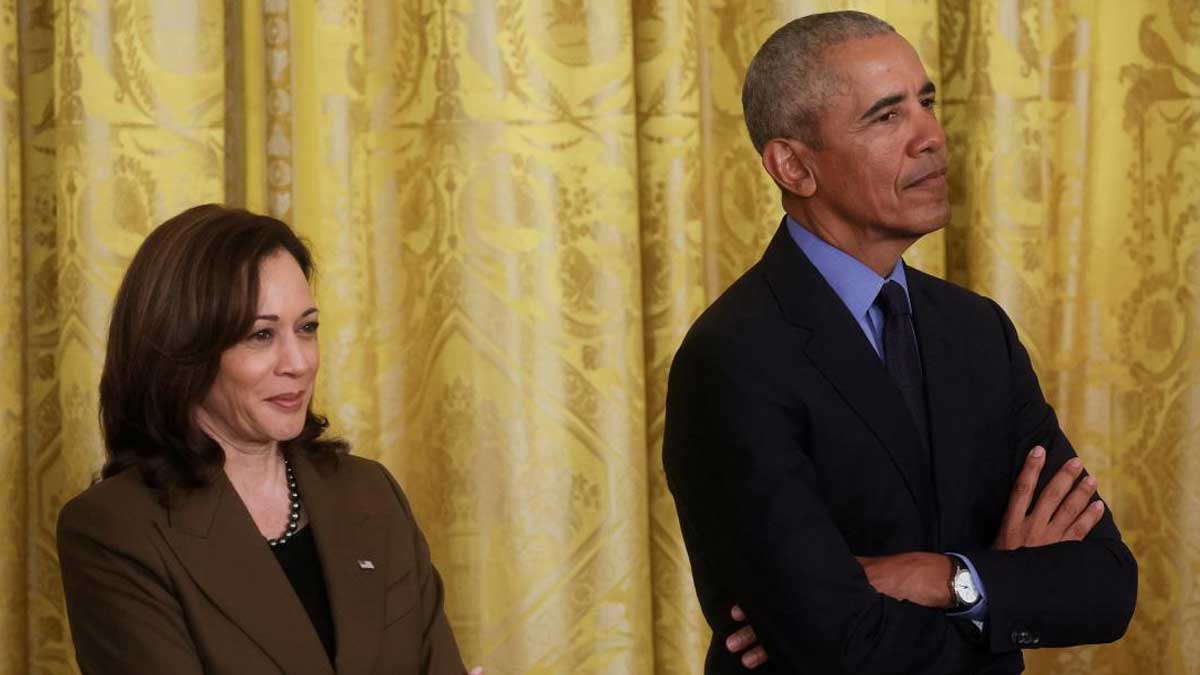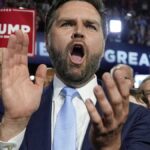- Home
- Billionaires
- Investing Newsletters
- 193CC 1000
- Article Layout 2
- Article Layout 3
- Article Layout 4
- Article Layout 5
- Article Layout 6
- Article Layout 7
- Article Layout 8
- Article Layout 9
- Article Layout 10
- Article Layout 11
- Article Layout 12
- Article Layout 13
- Article Layout 14
- Article Sidebar
- Post Format
- pages
- Archive Layouts
- Post Gallery
- Post Video Background
- Post Review
- Sponsored Post
- Leadership
- Business
- Money
- Small Business
- Innovation
- Shop
Recent Posts
Obama’s Endorsement of Harris Awaited Soon

Former President Barack Obama is expected to offer a significant endorsement to Vice President Kamala Harris in the near future, as reported by several media outlets. This potential endorsement would represent a crucial boost for Harris, who has been actively seeking high-profile support following President Joe Biden’s recent withdrawal from the presidential race. Despite the growing anticipation, Obama has yet to make any public statements regarding his support for Harris.
According to sources, Obama and Harris have been in communication, and CNN has reported that Obama’s endorsement is anticipated shortly. An endorsement from Obama would be a major asset for Harris, providing a notable endorsement from one of the most influential figures in the Democratic Party. However, Obama has chosen to remain silent on the matter thus far, which has led to speculation about the timing and reasons behind his reluctance to publicly back Harris.
In the aftermath of Biden’s exit, several prominent Democrats and donors quickly rallied behind Harris. This swift support underscores Harris’s rising prominence within the party. Nevertheless, Obama did not mention Harris in his public statement following Biden’s announcement. Instead, Obama focused on praising Biden, describing him as “one of America’s most consequential presidents” and a “dear friend and partner.” This omission has fueled speculation about Obama’s reasons for withholding his endorsement.
One potential explanation for Obama’s delay is his desire to avoid making any public comments before Biden’s Oval Office address on Wednesday night. This address was expected to be a significant moment for Biden, and Obama may have chosen to respect this timing by withholding his endorsement until after the address. Despite this, Obama has recently spoken positively about Harris. Sources close to Obama have informed NBC News that he believes Harris is “off to a great start” in her campaign, indicating his support might be forthcoming.
Another reason for the delay could be a strategic decision by Obama and Harris to allow the endorsement to have its own impact. Following Biden’s exit, Harris has received endorsements from several high-profile Democrats, including Bill and Hillary Clinton, House Minority Leader Hakeem Jeffries, and Senate Majority Leader Chuck Schumer. By waiting, Obama may be aiming to let his endorsement stand out independently of these other endorsements, which could enhance its significance.
Moreover, Obama might be waiting for Harris to be officially named the Democratic nominee before making his endorsement public. The New York Times has reported that Obama believes his role is to help unite the party once a nominee is confirmed. By holding off on his endorsement, Obama might be trying to avoid any appearance of attempting to control the party behind the scenes or exert undue influence before the official nomination process is complete.
Prior to Biden’s withdrawal, Obama had publicly demonstrated his support for Biden, even amid growing concerns about the president’s age and cognitive state following a challenging debate performance. Despite Biden’s struggles, Obama defended him in a June 28 post on X, emphasizing that difficult debate performances are not uncommon. However, reports suggest that Obama’s support for Biden was not without reservations. Politico indicated that Obama did not intervene when prominent Democratic donor George Clooney called for Biden to withdraw from the race earlier this month. Additionally, some of Obama’s staff reportedly supported Biden’s departure, leading to tensions between Biden and Obama. Biden is said to have felt frustrated by what he perceived as undermining actions by Obama, though there is no evidence to suggest that Obama actively tried to sway the party away from Biden. Their relationship, while close, is known to be complex and at times strained.
Looking forward, Harris is expected to be officially nominated at the Democratic National Convention, scheduled for August 19-22 in Chicago. However, changes to the convention rules now allow for candidates to declare their intentions by Saturday, potentially accelerating Harris’s nomination to as early as August 1. This change could significantly impact the timeline of her campaign and the strategic decisions of those involved.
The impetus for Biden’s withdrawal was partly driven by concerns about his performance in a CNN presidential debate, where he appeared to struggle with focus and his voice sounded strained. This debate, coupled with mounting pressure from Democratic lawmakers, donors, and pundits, led to increased calls for Biden to end his campaign. Many Democrats advocated for Harris to take over, despite her lower popularity and challenging poll numbers against Trump in crucial swing states. Following Biden’s decision to withdraw, he quickly endorsed Harris, who has since secured major endorsements and set a fundraising record by raising $81 million in just 24 hours. This swift fundraising success highlights the significant momentum Harris has gained in the wake of Biden’s exit.
Recent Posts
Categories
- 193cc Digital Assets2
- 5G1
- Aerospace & Defense46
- AI37
- Arts3
- Banking & Insurance11
- Big Data3
- Billionaires447
- Boats & Planes1
- Business328
- Careers13
- Cars & Bikes76
- CEO Network1
- CFO Network17
- CHRO Network1
- CIO Network1
- Cloud10
- CMO Network18
- Commercial Real Estate7
- Consultant1
- Consumer Tech180
- CxO1
- Cybersecurity68
- Dining1
- Diversity, Equity & Inclusion4
- Education7
- Energy8
- Enterprise Tech29
- Events11
- Fintech1
- Food & Drink2
- Franchises1
- Freelance1
- Future Of Work2
- Games141
- GIG1
- Healthcare78
- Hollywood & Entertainment186
- Houses1
- Innovation42
- Investing2
- Investing Newsletters4
- Leadership65
- Lifestyle11
- Manufacturing1
- Markets20
- Media193
- Mobile phone1
- Money13
- Personal Finance2
- Policy567
- Real Estate1
- Research6
- Retail1
- Retirement1
- Small Business1
- SportsMoney33
- Style & Beauty1
- Success Income1
- Taxes2
- Travel10
- Uncategorized8
- Vices1
- Watches & Jewelry2
- world's billionaires416
Related Articles
Trump Moves $4B Stake in Truth Social Parent, Stock Drops 6%
Donald Trump recently transferred his 57% stake in Trump Media & Technology...
By 193cc Agency CouncilDecember 20, 2024House Rejects Trump-Backed Funding Bill, Shutdown Looms
The U.S. House of Representatives rejected a new government funding bill on...
By 193cc Agency CouncilDecember 20, 2024Trump Named Time’s Person of the Year for Second Time
On Thursday, Time magazine honored Donald Trump as its “Person of the...
By 193cc Agency CouncilDecember 12, 2024Meta Donates $1 Million to Trump’s Inaugural Fund
Meta, the parent company of Facebook and Instagram, has confirmed a $1...
By 193cc Agency CouncilDecember 12, 2024















Leave a comment